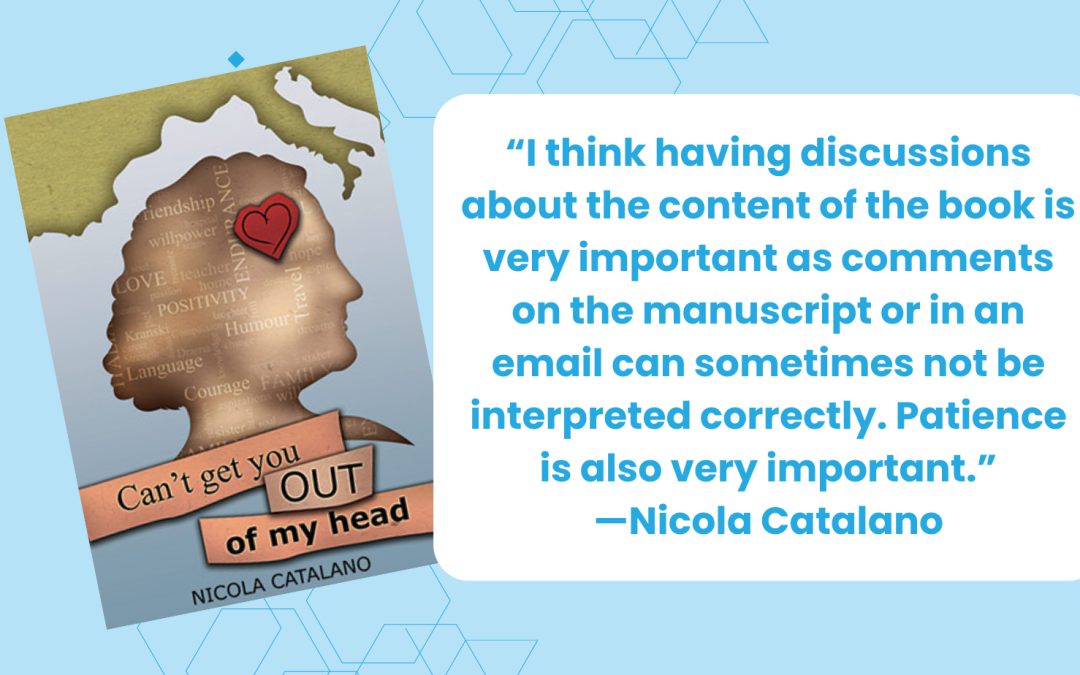By Editors South Australia
The guest speaker for Editors SA’s latest In Conversation series was Nicola Catalano. When Nicola underwent her fourth surgery for a brain tumour, she lost her vision. She was inspired to write a book about her experiences, which she did using adaptive technologies. She shared her story with us and spoke about how she wrote a book without sight and her experiences working with her editor.
Nicola now spends her time writing and giving talks to book groups, blind associations, students, community groups and other health-focused groups, and has just completed an update to her 2015 book.
What inspired you to write Can’t get you out of my head?
My experience of being diagnosed with a large pituitary gland tumour and the entire process was something that I felt needed to be shared with others. I knew I could show others, through my experience, how you can cope with the challenges you face. I also wanted to show that life is too short and that it can change in an instant. My aim was to illustrate how a positive attitude, humour, support and comfort from family and friends, and unconditional love helped me get through all I experienced.
How did you adapt the writing process to compensate for a lack of vision?
Firstly, I typed out notes of what I wanted to include on my laptop, then set out a structure to help me decide what to include. I think my background as an English teacher helped me with the organisation of my book. Since I used an audio screen reader to write my book, my loss of vision didn’t really create problems for me.
How would you sum up your experience of being edited?
Since I was writing a very personal book filled with all of my experiences, thoughts and emotions, I knew an editor’s perspective would be very beneficial. I knew an editor could be objective and could ask me questions that would make me reflect and justify their inclusion in the book.
What advice would you give editors who work with people with a disability?
From my personal experience, I think having discussions about the content of the book is very important as comments on the manuscript or in an email can sometimes not be interpreted correctly. Patience is also very important.
I also think that people need to re-examine stereotypes about disabilities; for example, one of the first things I’m asked is if I use Braille and what do I do now since I can’t watch television. It’s really important to listen and find out what you can about the disability and the individual’s experience of having the disability. For example, there is a difference between people who are born blind and those who eventually or suddenly lose their sight. It’s a lot harder for people who are born blind to grasp concepts such as colours.
Thankfully, more technology is becoming available so that blind people feel more included. Audio description is becoming more readily available so that when there is only action in a film or play and no dialogue, a narrator describes what is occurring on the screen. I’ve also been to plays where they’ve allowed blind people to tour the stage and touch the props and costumes. At one Aboriginal/First Nations play, they mentioned salt plums numerous times. One of the cast cut a piece of plum for me to try so I could really understand what the salt plums were like. I put the piece in my mouth and tasted a burst of salt, followed by the lovely sweetness of a plum.
Nicola’s book Can’t get you out of my head is available via Vivid Publishing.

